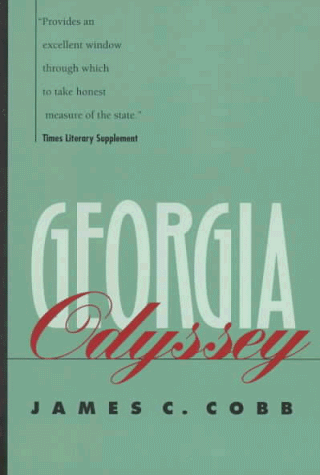 Frank Reiss interviews Herschel Walker on this week's edition of Cover To Cover, Sunday at 8pm. Frank posts these comments about Herschel, himself, and the upcoming interview:
Frank Reiss interviews Herschel Walker on this week's edition of Cover To Cover, Sunday at 8pm. Frank posts these comments about Herschel, himself, and the upcoming interview:
Having entered the University of Georgia in the Fall of 1980, just as Herschel Walker did--with every intention of pursuing a career in sports journalism--the Bulldog legend has figured prominently in my life for quite some time. I covered his entire college career for WGST Radio and for the campus paper, The Red & Black, and have vivid memories of interviewing Herschel at weekly press conferences, after games, even jogging around the track in the Spring of 1981 on the day we learned together that President Reagan had been shot.
Walker had always struck me as mysterious, or more probably disingenuous, with his talk about wanting to be an FBI agent, never working out, writing poetry... His answers to the constant onslaught of sports writers' questions were, even by the standards set in that world, repetitive, cliche-ridden, wholly impersonal. And unbelievable.
But, of course, as a Bulldog fan, I've always loved Herschel. There's simply never been anybody like him. To have witnessed his college career seems to me to be a privilege equal to having watched Babe Ruth. An entirely transcendent figure.
So when I learned that Herschel had written a memoir disclosing that he suffered from a rare psychological disorder, I was fascinated. "Maybe that explains his odd, distant demeanor that I remembered from a quarter of a century ago," I thought. In fact, in talking to
Atlanta Journal -Constitution book editor Tom Sabulis, my fascination over the idea of the book boiled over, leaking word to the paper months in advance of when Herschel's publisher had intended to put the book out.
Breaking Free was originally scheduled to come out in August, right before football season. When the AJC broke the story early this year, though, Simon & Schuster rushed it into production.
The book has obviously caused quite a stir in sports circles and in the psychological community. "Is this for real?" everybody seems to be asking. Having devoured the book as soon as I got my hands on an advanced copy, I'm convinced that it is. Anybody suggesting that Herschel made this up to sell books has got to have some sort of a psychological disorder themselves. "Herschel Walker, Football Hero" would have been a much easier sell to the Bulldog nation than this work.
Nobody could have a squeakier clean image than Herschel, so the idea that he is using this as an excuse for bad behavior doesn't make sense either, because he hasn't needed to be excused for anything. The only bad behavior anyone has ever heard about from Herschel is from him, in this book.
As Herschel said in our interview, nobody can really understand the mystery of the human mind. So whether anybody else wants to agree with his and his doctor's diagnosis of Dissociative Identity Disorder seems irrelevant. Something was clearly causing Herschel to behave in ways he was scared by, and ashamed of, and the treatment he has undergone, has helped him manage that behavior better. And since the treatment included writing about his life, it has resulted in this book.
Herschel's journey inward has also revealed to him, in addition to all of the difficulties D.I.D. has caused, that the way his mind works has also been instrumental in making him the remarkably accomplished person he is.
After reading the book, after spending time with him at his Atlanta book signing, and especially after interviewing him for
Cover To Cover. I admire Herschel Walker as a man as much as I ever have as an athlete. His willingness to explore such a controversial topic strikes me as truly heroic.
Our conversation covered a lot of ground, most intriguingly for me his love of literature and his student experiences at UGA. Outside the studio, Herschel talked even more excitedly about his business ventures. This was not the robotic-sounding athlete with the canned answers I've heard for all these years--and whom you can still hear in most of his interviews; this is a deep-thinking, phenomenally-driven, complex man whose remarkable mind and spirit is likely to lead him down many more interesting paths in the future. I, for one, will be watching--and reading--with great interest.
-Frank Reiss





































